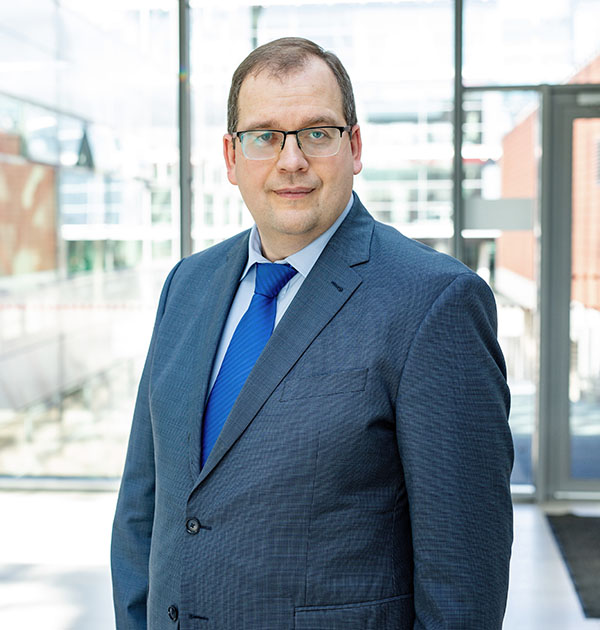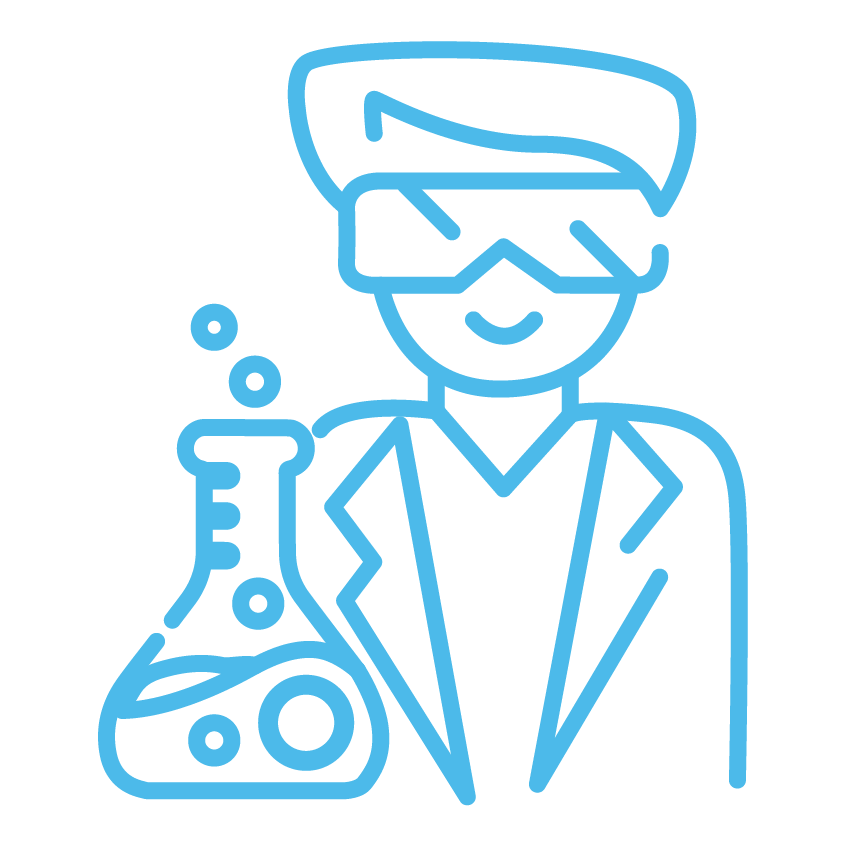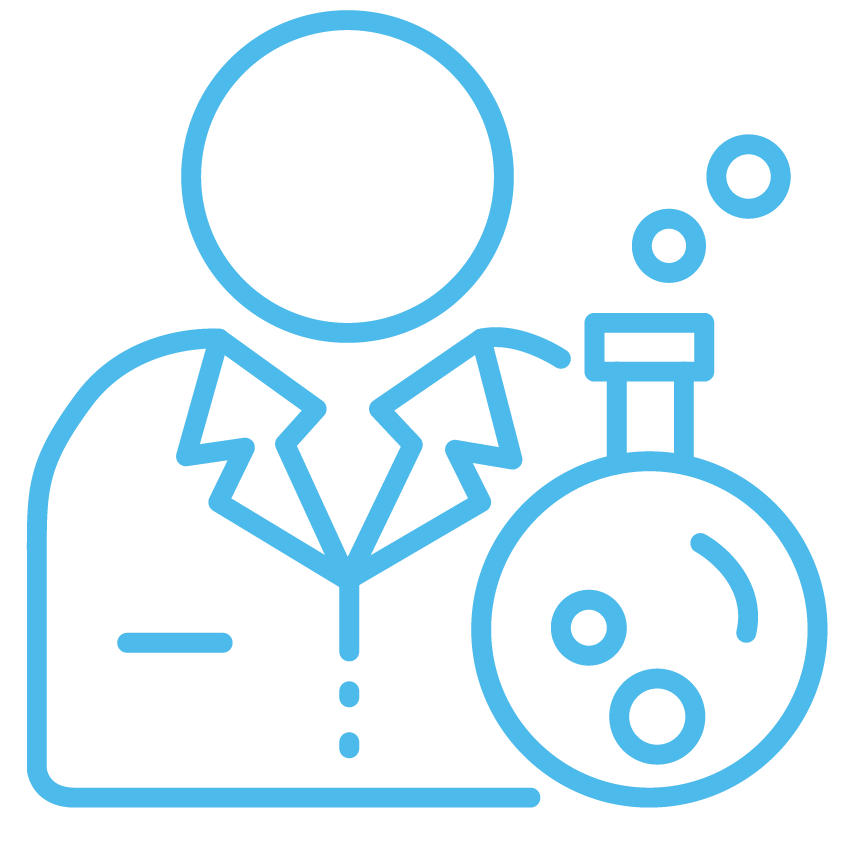
Institute of Pharmaceutical Technologies
Pharmaceutical and analytical research is constantly being carried out at the Faculty of Pharmacy of LSMU. In the course of scientific-research activities, there was a need to create an integrated pharmaceutical research core capable of scientific and applied knowledge, designed to carry out research on medicines, materials used in their production and intermediate products and related product groups (food supplements, cosmetic preparations), to accumulate and apply high-level competence and know-how in the fields of pharmaceutical and analytical research, to provide value-added services.
On 23 November 2017 during the meeting of the Faculty of Pharmacy Council, the establishment of the Institute of Pharmaceutical Technologies was approved. On 1 March 2018 the Institute of Pharmaceutical Technology began to function as a research unit of the faculty.
RESEARCH
Directions of technological development of the Institute of Pharmaceutical Technologies:
- New pharmaceutical and related products;
- New biotechnological methodologies (proteins, peptides, amino acids, separation and fractionation);
- New analytical and preparatory methodologies;
- Cell systems research.
STUDIES
The Institute of Pharmaceutical Technologies functions as a scientific study base where students’ scientific activities are carried out. Students of all study levels can conduct research and prepare final research papers at the institute: For students of Pharmacy, Medical and Veterinary Biochemistry, Medical and Veterinary Genetics, and Medicinal Chemistry study programmes, doctoral studies in the fields of Pharmacy (M 003) and Biology (N 010) are also conducted at the Institute.
LABORATORIES
Head of the Laboratory
Prof. Dr. Lina Raudonė
Tel. +370 682 41377
Email address: lina.raudone@lsmu.lt
You can find the contacts of the laboratory staff here .
The activities of the biopharmaceutical research laboratory are organised taking into account the needs of the quality management system, which would allow for the accreditation of test procedures according to ISO 17025. The purpose of the quality management system of the biopharmaceutical research laboratory is to provide socio-scientific partners and research clients with confidence that the institute conducts research that meets quality requirements.
Currently, the laboratory is accredited to conduct research on medicinal substances according to the ISO 17025 quality management standard (accreditation certificate No. LS.185-01).
Main directions of activity:
Sub-topic “Research on diversification of quality indicators of biopharmaceutical and related products and development of methodological solutions”
- Development of analytical methodological conditions (preparation of analytical samples, chromatographic separation) for the investigation of the composition of active and auxiliary substances, intermediate and final products used in the production of medicines.
- Development of biopharmaceutical research for the study of the qualitative characteristics of active and auxiliary substances, intermediate and final products used in the production of medicines.
- The application of innovative and selective analytical methodologies in the evaluation of the diversification factors of the composition of plant raw materials and products.
- Studies of herbal medicinal raw materials and phytopreparations (composition, antioxidant activity studies and bioactivity studies).
- Applied development and implementation of analytical methodologies, including implementation and development of specialised (including accredited) procedures.
- R&D activities carried out taking into account the needs of customers (business entities).
Services provided
Accredited studies:
| Research/trial object | Research/test components, parameters or characteristics | Designator, section, clause of the document defining the methods (if applicable) | Method type, principle and/or equipment used (if applicable) |
| Medicinal melissa leaves | Rosmarinic acid | EUR. Ph. 01/2011:1447 | Liquid chromatography |
| Narrow-leaved senna leaves (accreditation initiated) | Anthraquinones and hydroxyanthracene glycosides | EUR. Ph. 04/2020:0206 | Liquid chromatography |
Other studies :
Study of ultra-performance liquid chromatography with a mass spectrometry detector:
- Studies of various drugs and their metabolites;
- Studies of phenolic acids and flavonoids in plant raw materials and phytopreparations;
- Organic acid research;
- Studies of oxidised lipids;
- Peptide studies.
Performance liquid chromatography studies:
- Qualitative and quantitative analysis of phenolic compounds in apple sample extracts;
- Qualitative and quantitative analysis of triterpene compounds in apple sample extracts;
- Qualitative and quantitative analysis of phenolic compounds of pear sample extracts;
- Application of other liquid chromatography methodologies according to Ph. EUR. 2.2.29.
Spectrophotometry studies:
- Determination of the total amount of phenolic compounds (using the Folin–Ciocalteu methodology);
- Determination of total flavonoid content;
- Determination of the total amount of proanthocyanidins (using the DMCA methodology);
- Determination of the total amount of hydroxycinnamic acid derivatives;
- Determination of antiradical activity in vitro (using ABTS, DPPH and TFPH methods);
- Determination of reducing activity in vitro (using FRAP and CUPRAC methods).
More information about services and rates can be found here .
Head of the Laboratory
Dr. Aistė Jekabsonė
Tel. +37067594455
Email address: aiste.jekabsone@lsmu.lt
You can find the contacts of the laboratory staff here.
The activities of the Pharmaceutical Scientific Laboratory are organised taking into account the needs of such scientific-experimental activities, which would allow to achieve high-level or large-scale R&D works.
Main directions of activity:
Subtopic: “Application of innovative biotechnologies for the development of tissue-on-a-chip models and advanced drug research”
- Selection and application of cells suitable for drug and drug discovery models in a variety of models (including brain, tumour, respiratory, skin and insulin resistance).
- Selection of suitable hydrogel materials for research models of drugs and medicinal substances and targeted modification for various models.
- Selection of appropriate conditions such as perfusion type and parameters, temperature, oxygen concentration, cell ratio, seeding sequence and others to maximize the functionality of drug discovery models.
- R&D activities carried out taking into account the needs of customers (business entities).
Subtopic: “Search and practical application of innovative pharmaceutical product technologies”
Head of the Research Group: Prof. Dr. Jurga Bernatonienė
- Search for the effect of extraction methods on the yield of active substances from plant raw materials. Studies on the production of dry extracts.
- Selection of innovative product recipes, technological modelling, assessment of biopharmaceutical properties and quality. Optimisation of the composition and technological processes of innovative pharmaceutical products using experimental design.
- Production studies of the system in the “liquid/solid” phase. Modelling and quality assessment of oleogels composition.
- Influence of polyacrylic acid polymers on technological functionalsation of gels. Use of polyacrylic acid polymers for w/w stabilisation of emulsions, investigation of emulsion stability.
- Studies of the effects of preparations on skin moisture, lipids, pigmentation, and keratin content.
- Extracts, etc. microcirculation studies of active compounds (in cooperation with other institutions).
- Research on demand and consumption factors for organic and plant-based products.
- Production of chewing tablets (gums).
- Production of tablets and capsules.
- R&D activities carried out taking into account the needs of customers (business entities).
Services provided
Biopharmaceutical research:
- Rheological tests (determining the rheological (flow) properties of medicinal preparations, cosmetics and food products);
- Dissolution studies (assessment of the dissolution of solid drug forms (tablets, capsules, granules, powders and suppositories) (according to Ph Eur. 2.9.3 and 2.9.42 monographs);
- Particle size determination (particle size determination of microemulsions, nanostructured carriers with the ZetaSizer device; determination of the particles of emulsions, suspensions with the MasterSizer device).
Production of various pharmaceutical forms and cosmetic products
- Tablets, capsules;
- Granules, microcapsules;
- Solutions, syrups;
- Ointments, gels;
- Creams, lotions, etc.
2018-2021 “Promotion of UAB AKVAVITA investments in R&D activities, creating innovative products in the beverage industry” (No. J05-LVPA-K-03-0117)
2018-2021 The project UAB Birštono mineraliniai vandenys and Ko investment promotion in R&D activities, creating innovative products” (No. J05-LVPA-K-03-0114)
2017-2021 “Development of eubiotically multifunctional nutraceuticals (EUNUTRITECH)” (No. 01.2.2-LMT-K-718-01-0062)
2020-2024 “Technological functionalisation of microencapsulated genistein and daidzein transport systems soluble in the stomach and intestines” (No. 09.3.3-ESFA-V-711-01-0001)
02.2020-12.2021 “Influence of branched chain amino acid degradation on tumour cell metabolism and proliferation” (No. P-SEN-20-20)
2020-2023 “Development of an innovative food supplement for the elderly to prevent geriatric frailty syndrome and malnutrition” (No. 01.2.1-LVPA-K-856-02-0037)
2020.12-2021.06 “UAB Fitodenta MTEP commercialisation of biotechnological results” (No.MITA -K-702-06-0010/JVS No.2020-JV-35)
2020-2022 “Development of highly potent compounds against S. aureus based on in silico chemogenomics, in vitro and in vivo studies”(No. 01.2.1-LVPA-K-856-01-0188). LSMU FTI is the applicant’s partner.
2019-2023 “Functionalisation of cellular vesicles for targeted drug delivery to glioblastoma cells”. LMT competitive doctorate
2019-2020 “Implication of respiratory exosomes exposed to poly I:C for immunometabolism of brain cells”. Development of scientific competence of LMT students through scientific activities during the semester
2020 “Innovative technologies for increasing the production of biologically active plant metabolites”/ PlasmaMET
Inter-institutional cooperation:
- VDU Faculty of Informatics – joint research;
- ASU Faculty of Agronomy – general research;
- KTU Faculty of Chemical Technology – joint research.
Cooperation with business partners
- UAB Švenčionių vaistažolės;
- UAB Aconitum;
- UAB Acorus calamus;
- UAB Širdažolė;
- AB Vilkyškių pieninė;
- UAB Medicata Filia;
- UAB Akvavita;
- UAB Gintarinė vaistinė;
- UAB Korteka;
- UAB Biotecus;
- MB Rūpestingi namai;
- UAB Innovative Pharma Baltics;
- UAB Nature Labs;
- UAB Santamed LT;
- UAB Ebenus;
- UAB Kelmės pieninė;
- UAB Birštono mineraliniai vandenys ir Ko;
- UAB Valentis;
- UAB Saldoga.




